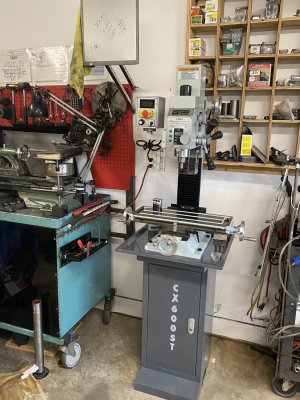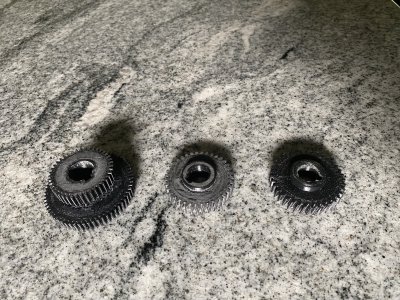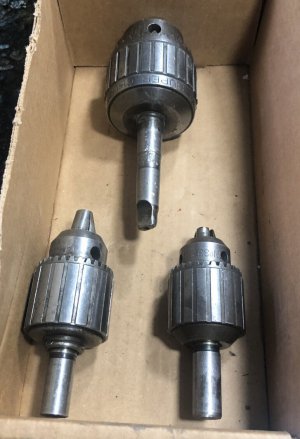I have got an Emco FB2 bench mill and over the years I have bought quite a lot of tools and accessories, some looked good to me at the beginning but I never used them much. The others looked unnecessary but they turned out to be cant-do-without stuffs.
Just some suggestions base on my experience :
- a GOOD vice. The vice does not just hold the workpiece but provides important horizontal and vertical reference surfaces for measurement. - VERY important for accurate machining
- V blocks for holding round workpiece in the vice
- a set of parallels to go with the vice
- a set of good clamps. I prefer those having a screw instead of a stepped blocks at the back. Adjustment is so much easier
- a quality DTI with good stand. I prefer the Noga type stand.
- edge finder. The conventional mechanical finder is the best for me.
- center finder
- touch detector like this : https://rick.sparber.org/AnalogElectronicEdgeFinder.pdf
- protractor / sine bar / tiltable vice
- try square
- slitting saw
- roughing mill
- facing mill accepting inserts or fly cutter
- boring head
- spot drill - VERY important for accurate drilling
- chamfering / countersink tools
- taps and tap holder
- DRO
- rotary table
Just some suggestions base on my experience :
- a GOOD vice. The vice does not just hold the workpiece but provides important horizontal and vertical reference surfaces for measurement. - VERY important for accurate machining
- V blocks for holding round workpiece in the vice
- a set of parallels to go with the vice
- a set of good clamps. I prefer those having a screw instead of a stepped blocks at the back. Adjustment is so much easier
- a quality DTI with good stand. I prefer the Noga type stand.
- edge finder. The conventional mechanical finder is the best for me.
- center finder
- touch detector like this : https://rick.sparber.org/AnalogElectronicEdgeFinder.pdf
- protractor / sine bar / tiltable vice
- try square
- slitting saw
- roughing mill
- facing mill accepting inserts or fly cutter
- boring head
- spot drill - VERY important for accurate drilling
- chamfering / countersink tools
- taps and tap holder
- DRO
- rotary table
Last edited:






